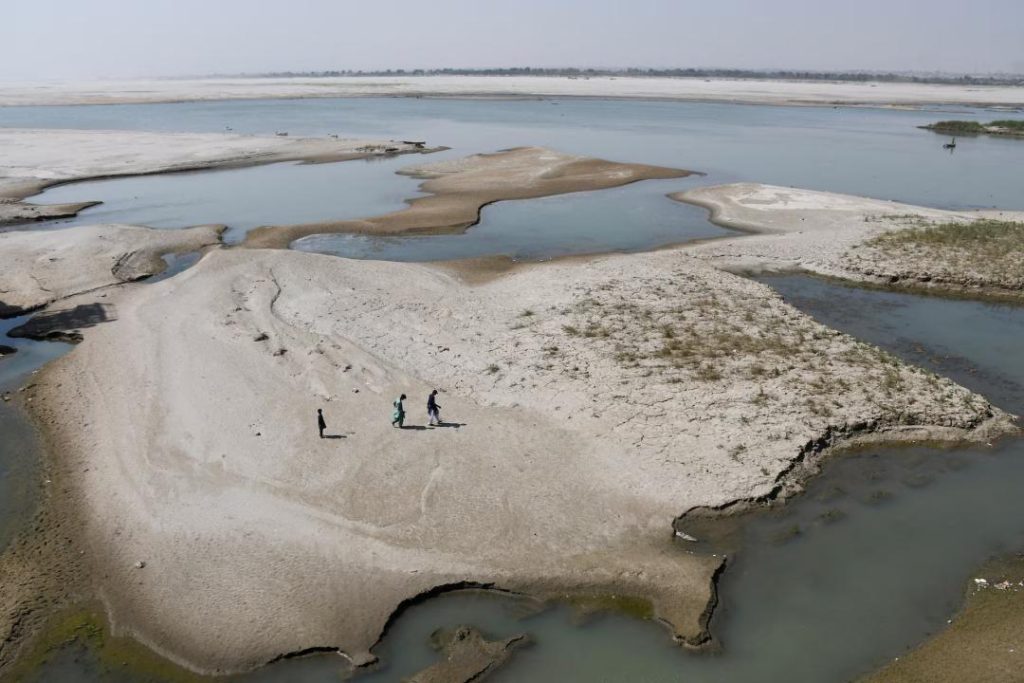
Not a Drop of Water for Pak, Govt Working on 3 Plans: Minister Paatil after Indus Treaty Move
In a shocking move, India has suspended the Indus Waters Treaty with Pakistan, which has been in place since 1960. This decision has been taken in the wake of repeated attempts by Pakistan to disrupt the flow of water in the Indus River, which is shared by both countries. The suspension of the treaty has sent shockwaves across the region, with many wondering what this means for the future of water sharing between the two nations.
In an exclusive interview with CNN-News18, Jal Shakti Minister CR Paatil revealed that India is working on three plans to ensure that Pakistan does not get even a single drop of water. The minister said that the Centre has three plans in place – a long-term plan, a short-term plan, and a mid-term plan – to address the issue of water sharing with Pakistan.
The Indus Waters Treaty was signed in 1960 between India and Pakistan to resolve the issue of water sharing between the two countries. The treaty allowed Pakistan to receive a significant amount of water from the Indus River, which is a vital source of water for agriculture, industry, and daily use. However, in recent years, Pakistan has been accused of disrupting the flow of water in the Indus River, which has led to tensions between the two countries.
The suspension of the treaty has been seen as a major blow to Pakistan, which relies heavily on the Indus River for its water needs. Pakistan has been trying to negotiate with India to resolve the issue of water sharing, but India has refused to budge.
The Jal Shakti Minister’s revelation that India is working on three plans to ensure that Pakistan does not get even a single drop of water has sent shockwaves across the region. The minister’s statement has been seen as a stern warning to Pakistan that India will not tolerate any further attempts to disrupt the flow of water in the Indus River.
The long-term plan, according to Minister Paatil, involves building dams and canals to store water during the monsoon season, which will ensure that India has enough water to meet its needs during the dry season. The short-term plan involves diverting water from other sources, such as rivers and lakes, to meet India’s immediate water needs. The mid-term plan, on the other hand, involves constructing new water storage facilities and upgrading existing ones to ensure that India has a reliable source of water.
The minister’s statement has been seen as a major step forward in India’s efforts to assert its rights over the Indus River. India has been accusing Pakistan of violating the Indus Waters Treaty and disrupting the flow of water in the Indus River, but Pakistan has denied any wrongdoing.
The suspension of the treaty has also been seen as a major blow to Pakistan’s economy, which relies heavily on agriculture. Pakistan’s farmers rely on the Indus River for irrigation, and any disruption to the flow of water can have devastating consequences for the country’s agricultural sector.
The situation is not without its risks, however. The suspension of the treaty could lead to a water war between India and Pakistan, which could have catastrophic consequences for both countries. India and Pakistan have a history of conflicts over the Indus River, and the current situation is no exception.
In conclusion, the suspension of the Indus Waters Treaty and India’s decision to work on three plans to ensure that Pakistan does not get even a single drop of water has sent shockwaves across the region. The situation is complex and sensitive, and it remains to be seen how it will play out in the coming weeks and months. One thing is certain, however – the suspension of the treaty has set off a major crisis in the region, and it will be up to the governments of India and Pakistan to find a solution that works for both countries.





